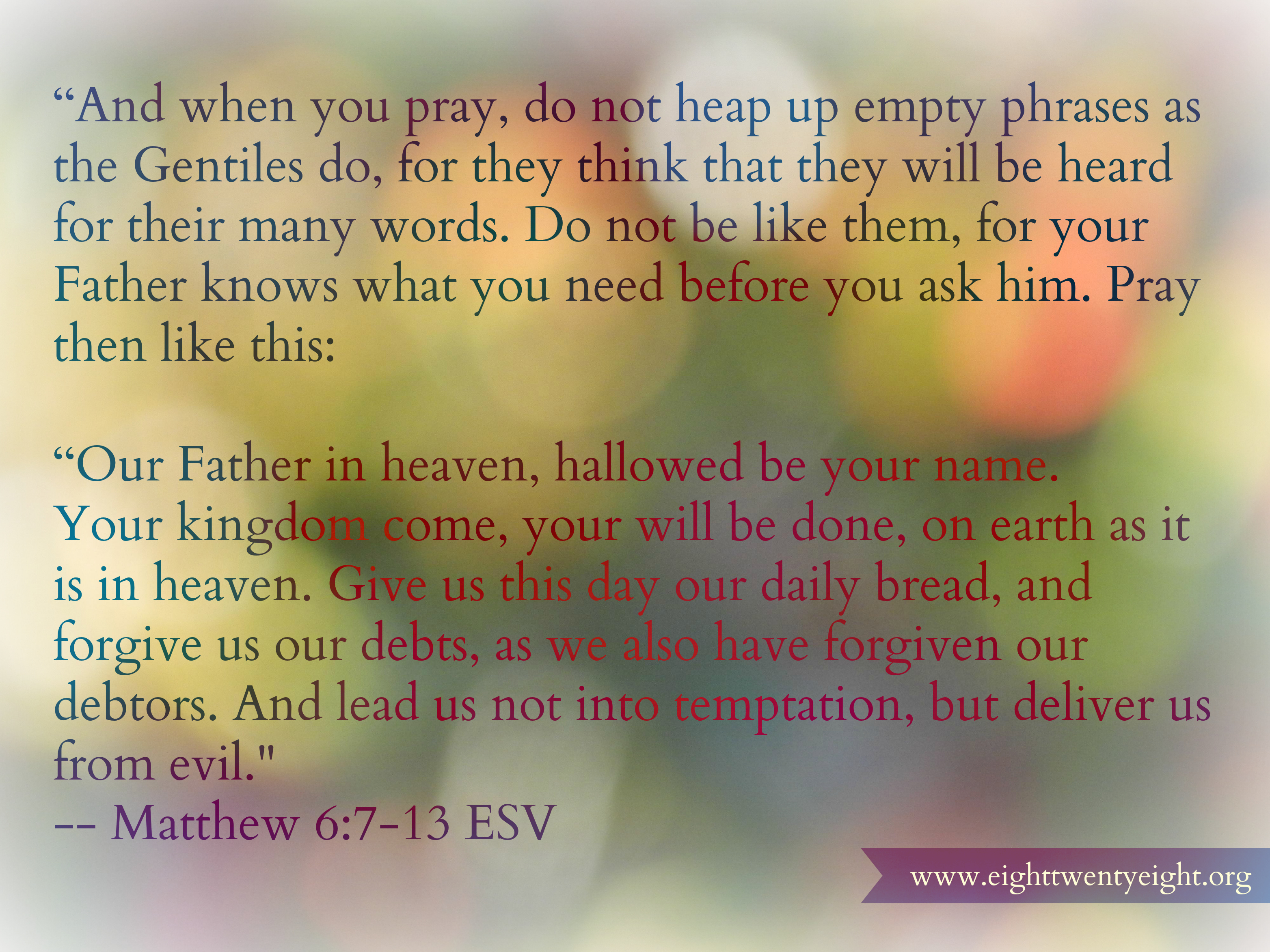How you’re “supposed” to pray
 I know a handful people who pray for uninterrupted lengths of time and with great joy. But I know far more people who struggle with prayer. They feel guilty about a lack of it, and have preconceived notions over how they’re “supposed” to do it. Not just the nuts and bolts, the “how” of prayer, but also the why, when and if.
I know a handful people who pray for uninterrupted lengths of time and with great joy. But I know far more people who struggle with prayer. They feel guilty about a lack of it, and have preconceived notions over how they’re “supposed” to do it. Not just the nuts and bolts, the “how” of prayer, but also the why, when and if.
(For the record, I’m in the latter population.)
There are so many passages in scripture that speak to prayer, but the most overt and frequently cited is from Matthew 6:

I remember my father praying this prayer with me at night before he died. They were the only words I knew how to utter to God for many, many years afterwards. Unfortunately, because of that repetition, they became exactly what Jesus warned against: empty phrases. Rote mechanics, devoid of emotion, understanding and even–sometimes–belief.
You, too, perhaps?
I treated this passage as a manual. The kind of user manual that comes with a new front-loading washing machine. “If the washer won’t operate correctly, please refer to the troubleshooting section.”
B.O.R.I.N.G.
Stepping back from Jesus’ words in Matthew 6 afforded me a new perspective. From there, it looked different, much as artistic masterpieces are best appreciated from far enough away to take in the whole work, instead of just skillful brushstrokes from up close.
Suddenly I could see the context and the heart of this passage:
Jesus–the Son of God–isn’t merely offering a prescription for prayer. Yes, He is modeling a way for us to pray. In that sense this passage can be used as a template for our conversation with God. These are the brushstrokes. Without them, the masterpiece isn’t visible at all.
But it is so much more than a handbook for prayer.
It is, at it’s very center, Jesus’ inclusion of us in His communication with Abba (Aramaic for “Daddy”). We are encouraged to adopt the same familial language as His own, to call out to God as our Father. We are being drawn into the holy huddle that exists among the Trinity. He’s extending an invitation to share in communion that exists between Himself and the Father and Spirit.
It’s tempting to view prayer as a formulaic approach to a “required” check-in with God. But, what would happen if we stopped thinking of it as something we’re supposed to do and instead recognized it as a privilege, something we’re invited to do because Jesus invited us into the conversation?
Why would we miss that opportunity?
For more on prayer, visit these posts:
On the Court
SMS or Pony Express
